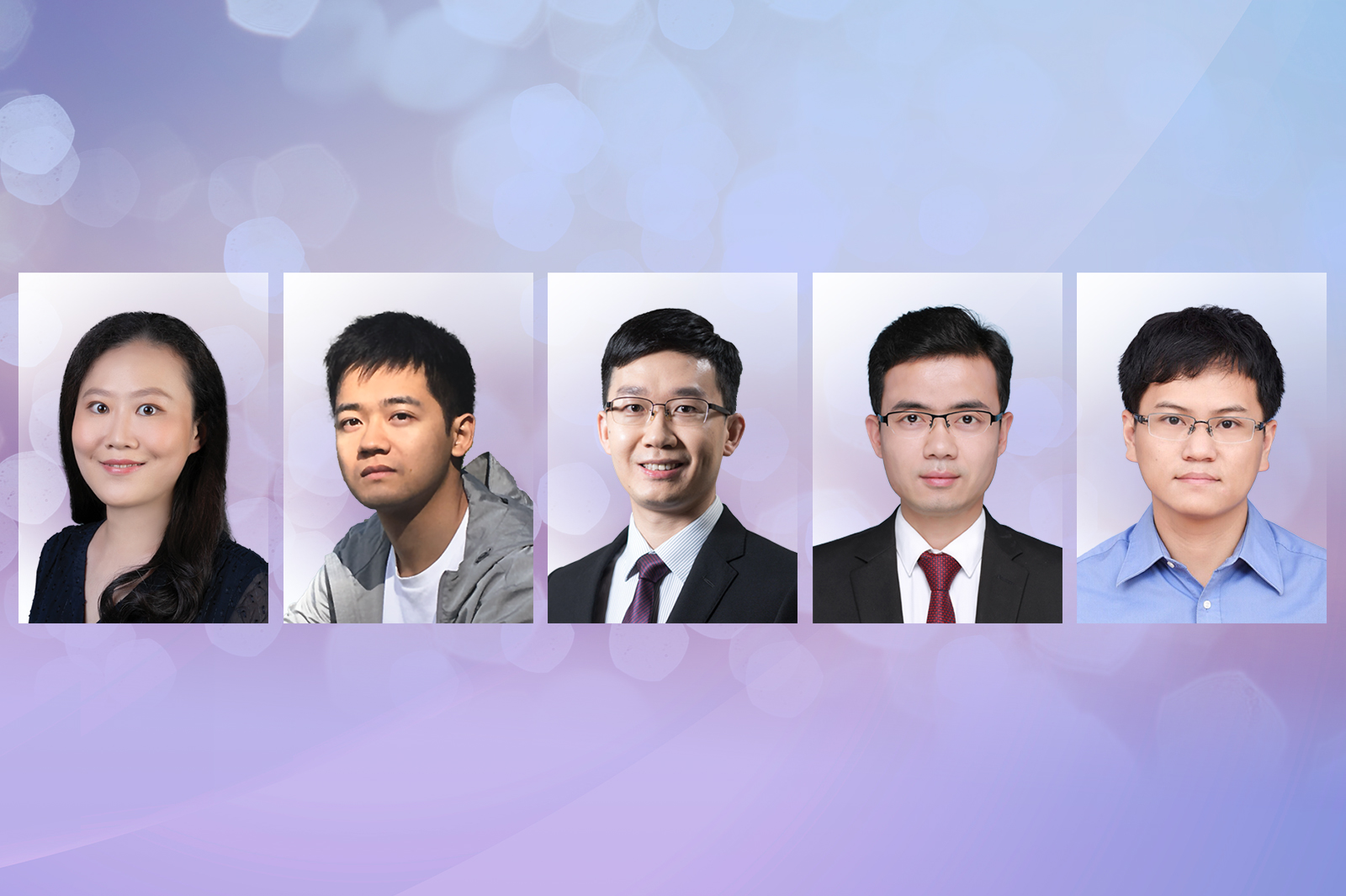Young scientists at CityU recognised by national funding

Five young academics at City University of Hong Kong (CityU) have been awarded the Excellent Young Scientists Fund (Hong Kong and Macau) by the National Natural Science Foundation of China (NSFC) for 2023. Each awardee will receive funding of RMB 2 million.
Professor Dong Yining, from the School of Data Science, was awarded for the project titled “Big Data Analytics in the Process Industry”.
Professor Dong established a new dynamic latent variable method to address the challenges of big data analytics methods in terms of process dynamics, interpretability and predictability. The new method realises the simultaneous extraction and prediction of dynamic features of high-dimensional data, and the “universality and interpretability” of the method has been proven. Professor Dong also developed process monitoring and diagnosis algorithms based on the dynamic latent variable models, which realise the transformation from traditional non-predictive monitoring to predictive monitoring.
Professor He Yukun, from the Department of Mathematics, was awarded for the project titled “Random Matrix”.
Professor He’s project aims to study the distribution of eigenvalues and eigenvectors of large random graphs, which is an important topic in probability theory and an effective model for studying complex networks. Professor He studied the adjacency matrix of random graphs, which is a generalisation of the Wigner matrix, and developed some new tools, which led to a number of promising results. Professor He and his team plan to continue generating new approaches with the aim of answering important open questions concerning the random graph model.
Professor Wang Shubo, from the Department of Physics, was awarded for the project titled “Optical and Acoustic Fields Manipulation by Artificial Microstructures”.
Light and sound manipulation by artificial microstructures is of critical importance for developing new communications and sensing technologies. Professor Wang’s team discovered the lateral optical force on chiral particles and topological optical fields generated by topological structures, realised arbitrary-order optical non-Hermitian exceptional point, acoustic spin-redirection geometric phase, and spin-orbit interactions of transverse sound, and explored their applications in manipulating light and sound. The results of the project will extend and lead the research on light and sound manipulation by artificial microstructures, and facilitate the development of novel optical and acoustic communications and sensing technologies.
Professor Wu Wei, from the School of Energy and Environment, was awarded for the project titled “Building Energy Efficiency and Efficient, Flexible Heat Pump”.
In this project, Professor Wu established a series of highly efficient absorption heat pump technologies, featuring cascade energy utilisation for building heating and cooling; developed absorption cycle performance-improvement methods matching heat source and ambient temperatures; enriched types of excellent absorption working pairs, together with fluid screening and performance optimisation; and proposed a flexible absorption-compression heat pump and absorption energy storage to realise supply-demand matching in buildings. The project aims to provide theories and methodologies for the research and development of highly compact, efficient and flexible heat pumps.
Professor Zhu Zonglong, from the Department of Chemistry, was awarded for the project titled “Rational Design and Synthesis of Key Materials for Emerging Photovoltaics with Performance Improvement”.
Professor Zhu is engaged in the design and synthesis of optoelectronic materials and their solar energy conversion. He and his team have achieved the best efficiency so far of 24.3% for inverted perovskite solar cells through small molecular interfacial materials, and have obtained the best efficiency (certified PCE 23.35%) for flexible perovskite solar cells. Professor Zhu has proposed developing high-performance organic materials from material design and synthesis to interfacial engineering and device fabrication for emerging photovoltaics, to fabricate efficient and stable perovskite solar cells and organic solar cells.
The Excellent Young Scientists Fund has supported young male scientists under the age of 38 and female scientists under the age of 40 in Hong Kong and Macau since 2019. Twenty-five awards are granted in Hong Kong and Macau each year, empowering promising researchers to make a significant contribution in their field.